Take back control of your plants from aphids with the tactical use of biologicals
Aphids
Aphids or more commonly known as black or greenfly are sap feeding soft bodied pests presenting a major challenge for growers and arguably are the most significant pest for growers due to their ability to cause major crop destruction and distortion to plants, acting as a vector for virus and creating environments for diseases.
The complex lifecycle of the aphid makes it well adapted for quick establishment within a crop with species able to reproduce through parthenogenesis with unfertilised viviparous females. The environmental conditions found within a protected environment present a perfect situation for the females to rapidly produce live young, with a single female turning into a colony within a very short space of time.
Widespread damage is cause to plants by the aphid piercing stems and leaves with its stylet and feeding on the sap. The by-product of this feeding is honeydew, which is high in sugars and not only creates an environment for sooty mould to establish it also attracts ants which will farm aphids as well as other honeydew producing pests and will defend the pest colonies. Getting ants under control is very important as colonies will defend their food source and deter the biologicals.
The rapid reproduction rate has led to resistance with insecticides rendering certain chemical groups ineffective against aphid species such as the Peach-Potato aphid. Reduction in effective and available insecticide products has created a necessity for sustainable effective control measures which can be achieved using macro biologicals within an integrated pest management approach.
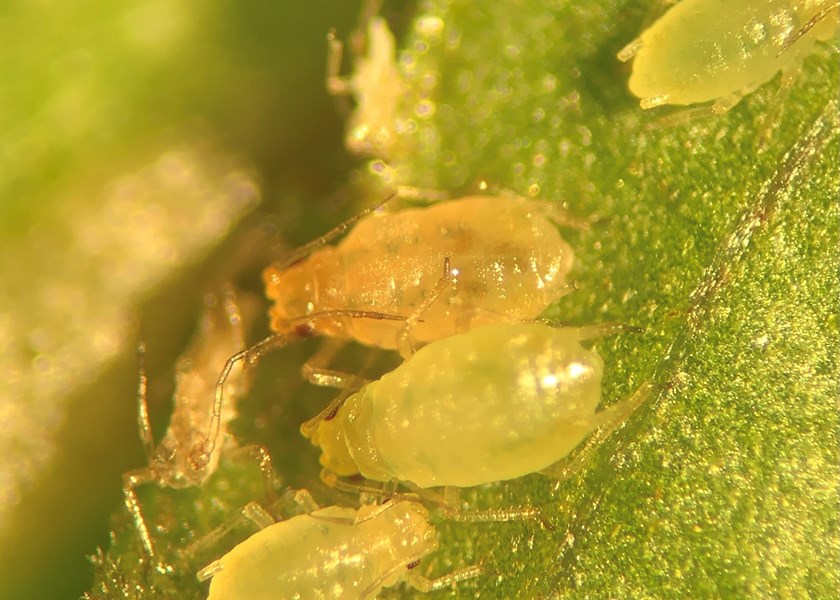
Aphidius wasps
At Fargro we offer a range of Aphidius parasitic wasps which actively searches for aphids by flying towards the scent of honeydew excreted by the host. When a suitable host is located the wasp will inject a single egg into the aphid using its ovipositor. The egg will take over the host turning the aphid into a golden mummy and the new wasp will eat its way out and emerge to then begin searching for further hosts to parasitise.
We offer a range of Aphidius species designed to target different aphid species, as different Aphidius species will have preference to select hosts.
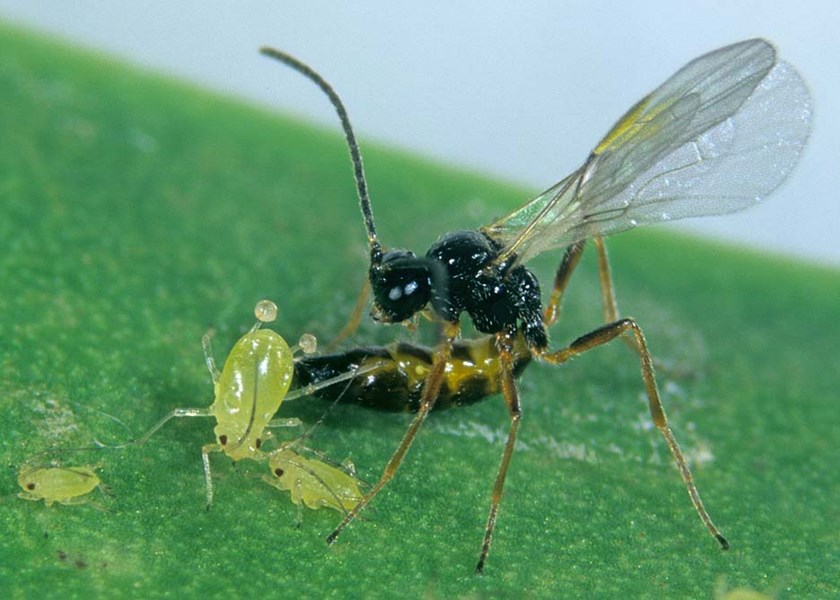
Aphidoletes aphidimyza
This species is a predatory midge and very useful in targeting a range of aphid species including the larger bodied species. The ability to predate a wide variety of aphid species comes from its attack on the aphid, biting at the legs of the aphid and injecting a paralysing toxin and sucking out the contents of the aphid. Application of this predator can be between April and September for re-cycling generations; however, they can be used all year round if supplementary lighting is available.
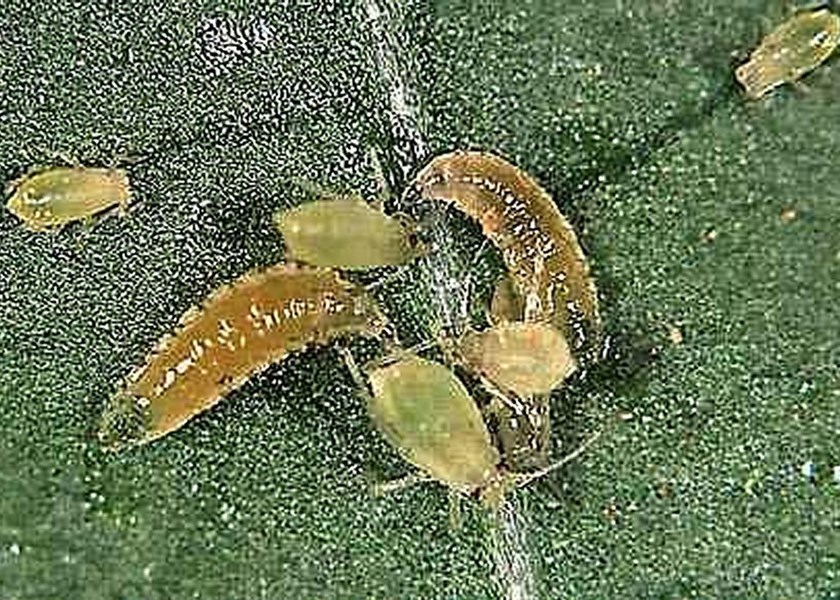
Aphidius colemani
This species will mainly parasitise the round bodied aphid species which make up a large number of the key aphid species and is the most widely applied biological species within the genus Aphidius.
Important targeted aphid species-
- Aphis gossypii Cotton Aphid
- Aphis fabae Black bean aphid
- Aphis idaei Raspberry Aphid
- Myzus persicae Peach-potato Aphid
Aphidius ervi
This species preferred hosts are the elliptical larger bodied aphid species.
Important targeted aphid species-
- Aulacorthum solani Glasshouse-potato Aphid
- Macrosiphum euphorbiae Potato Aphid
- Myzus persicae Peach-potato Aphid
- Amphorophora idaei Large raspberry aphid
Aphidius matricariae
Important targeted aphid species-
- Aphis idaei Raspberry Aphid
- Ovatus crataegarius Hawthorn-mint aphid
- Myzus persicae Peach-potato Aphid
- Myzus persicae nicotianae Tobacco aphid
Aphidius wasp mixes
To improve selection and targeting with Aphidius, us at Fargro offer parasitic wasp mixes containing multiple species to target the broad range of aphid species. Aphids have different host plants which they have preference to, with different aphid species targeting select plant species. Within for example the ornamentals industry, growers will often have a wide variety of plants thus attracting multiple species of aphids into the environment, these mixes enable growers to easily target the variety of aphid species within one tube mix.
Aphiline CE Mix
(Aphidius colemani/ervi)
Aphiline ACE Mix
(Aphidius colemani/ervi/Aphelinus)
Aphiline FLW Mix for Ornamentals
Aphidius colemani, Aphidius ervi, Aphidius matricariae, Aphelinus abdominalis, Praon volucre and Ephedrus cerasicola
Aphiline PACE PEVC Mix for Strawberry
Aphidius colemani, Aphidius ervi, Aphidius matricariae, Aphelinus abdominalis, Praon volucre and Ephedrus cerasicola.
Aphiline MACE PV Mix for Berries
Praon volucre, Aphidius colemani, Aphidius ervi, Aphidius matricariae and Aphelinus abdominalis.
Adalia bipunctata
A species of ladybird native to the UK. The adult beetle and larvae are both predatory and feed on most types of aphid and is a voracious predator able to be applied within protected environments and outdoors.
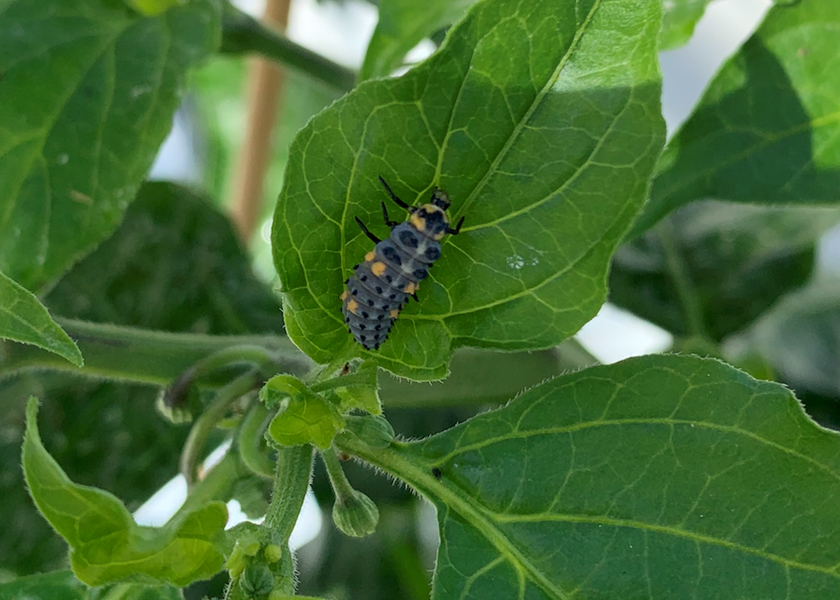
Chrysoperla carnea
Also known as lacewing, this predatory species is a very useful generalist predator effective at controlling established aphid populations, but also feeding on whitefly eggs and scales, thrips larvae, moth eggs, young mealybug nymphs and other small insects. This is a voracious predator with the adults able to fly enabling this species to actively search for pests across a growing area.
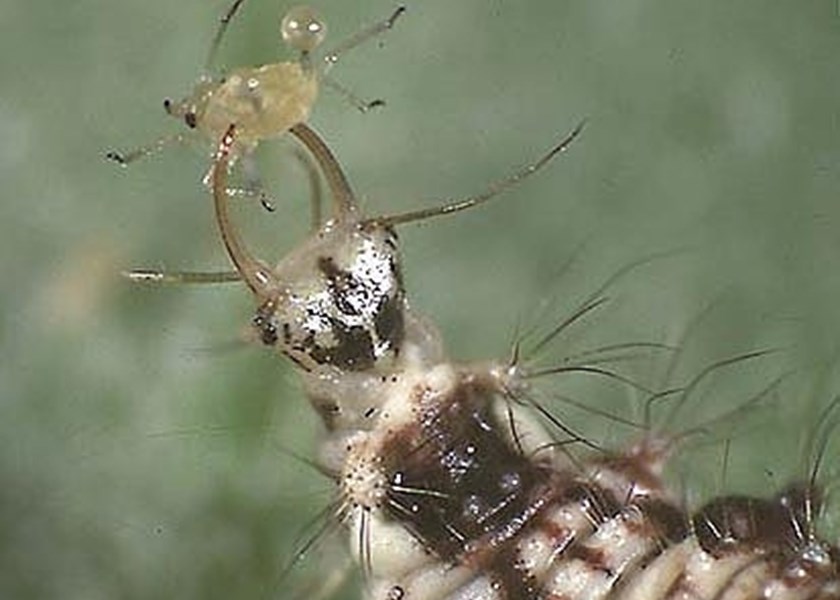
SB Plant Invigorator
When presented by a pest infestation it is important to determine what is required to bring the pest species under control and sometimes the answer is to spray with an insecticide. Integrating a spray alongside biologicals requires a product that will have a short persistence and is not going to harm the biologicals, effectively bringing the pest populations down to manageable levels for the biologicals to move in quickly on the remaining populations.
SB Plant Invigorator is a soft soap product, which has a physical mode of action covering and suffocating pests plugged into the crop. Once dried the product is harmless making for an effective product to include within an IPM programme.
The SBPI will also breakdown sooty moulds produced as a result of the honeydew excreted by aphids, also possessing a leaf washing effect for control of leaf diseases such as powdery mildew.
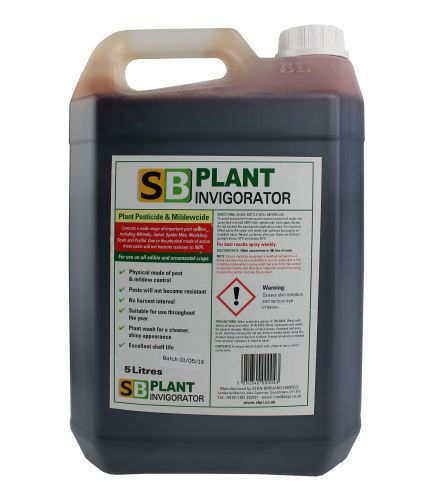
SB Plant Invigorator Commercial Strength 5lt
£184.01 Ex VAT